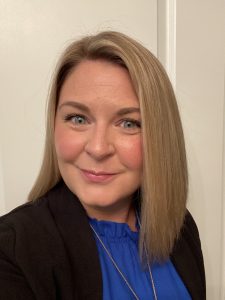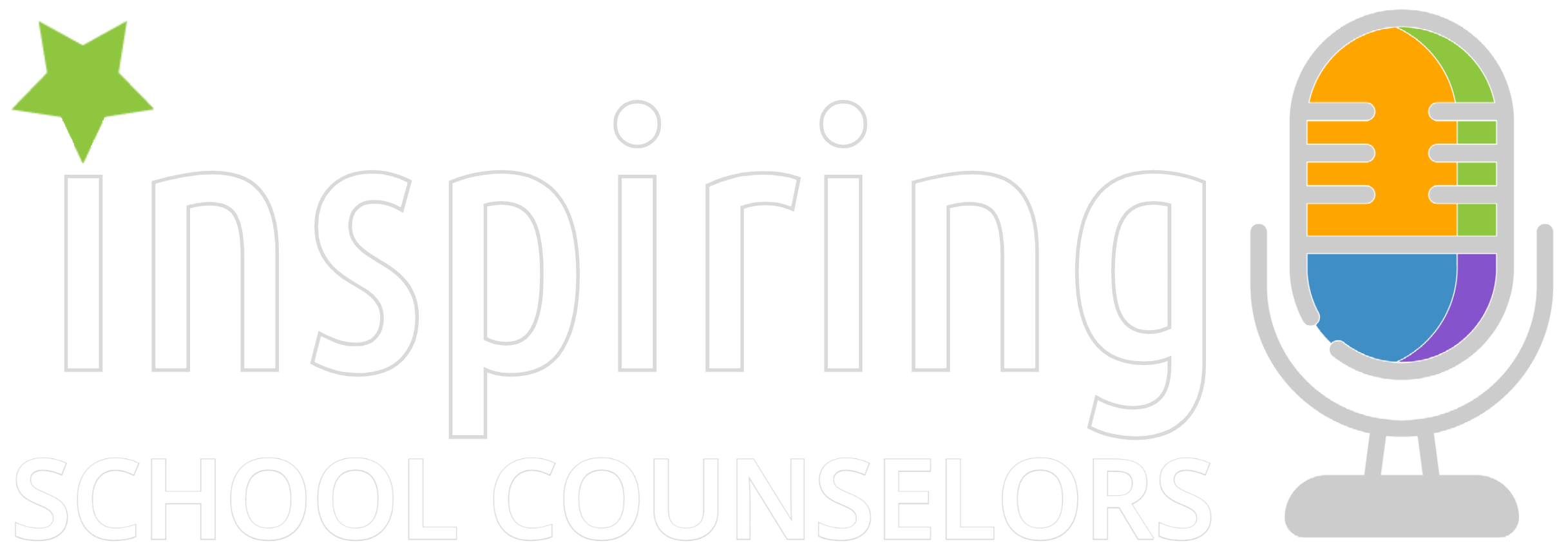When the relationship between a veteran school counselor and new counselor intern “clicks,” amazing things can result. Counselor intern Kathleen Whybrew shares the many ways students have benefited from the positive relationship with her counselor supervisor Laura Samide.

This Week's Storyteller
 Kathleen Whybrew is finishing her final semester at Liberty University to earn her Masters of Education degree in School Counseling. She is the mother of two children, ages 5 and 7, with her husband of 10 years. Though she loves working with all children and adolescents, she has a special place in her heart for middle schoolers as they navigate identity formation and discover their “why.”
Kathleen Whybrew is finishing her final semester at Liberty University to earn her Masters of Education degree in School Counseling. She is the mother of two children, ages 5 and 7, with her husband of 10 years. Though she loves working with all children and adolescents, she has a special place in her heart for middle schoolers as they navigate identity formation and discover their “why.”
Share YOUR Story!
 Do you have a touching or funny (or both) story about school counseling? We want to hear it! Drop us a line or record your story with our online Sound Booth.
Do you have a touching or funny (or both) story about school counseling? We want to hear it! Drop us a line or record your story with our online Sound Booth.
If you have questions or need help, let us know!
Subscribe
Encouraging Words for School Counselors is also available on these podcast apps and others. If you can’t find the podcast on your favorite app, let us know and we’ll make sure we get there. If you prefer to listen in your browser, visit https://inspiresuccess.org/podcast every week for a new episode. For new episode notifications and more, follow Inspire Success on Facebook, Instagram, or Twitter.
Transcript
Matt Fleck:
Welcome back to Encouraging Words for School Counselors – the five-minute podcast with a mission. A mission to inform and uplift your work week. I’m Matt Fleck, with Inspire Success.
Kathleen Whybrew is a school counselor intern working with supervisor Laura Samide in two schools, Maple Elementary and River Birch Elementary, in central Indiana. As you’ll learn today – intern Kathleen and supervisor Laura work VERY WELL together – even though at first they weren’t sure they should work together at all.
Kathleen Whybrew:
Laura and I have known each other for a long time. God love her, she knew me when I was a teenager. And so, we got through that part of life. So she kind of knew me a little bit coming in and she actually shared with me that one of her primary concerns was that I would not be a good intern and that there would always be this like weird dynamic that, oh my gosh, we had a preexisting relationship how do I go about telling her, “hey, this is not going working out.” But even with that thought in her mind, she still said on my first day, “you have a student at 9:30.” So day one, she got me directly in with students and gave me opportunities to interact and grow my skill sets.
Matt:
Directly interacting with students almost immediately presented Kathleen with opportunities to expand her skills. And Laura, her supervisor, was there to provide support and practical advice.
Kathleen:
We had a student who had a big problem with negative attention seeking in the classroom, where it was out of control, it was every day. You had a teacher who was completely invested in him and doing everything she could figure out but we just couldn’t get this student to control those impulses in the classroom. So she suggested doing a forced-choice inventory with them to figure out what is their motivation, what do they want. He actually valued more than anything teacher feedback. So, when I said to him, you know, hey, what would you rather do? Would you rather have a bag of chips or 100% written on your paper from your teacher? He would take the 100% every time. If I said, If you could choose anything, let’s say, you could choose between getting a smiley face on your paper from your teacher or you could choose an activity for the day, free time. He would choose the 100% on the paper. So I feel like when she gives me these kinds of tools to utilize it really opens up my eyes to different ways to assess students and how to go about spending my time most effectively with them. And assessments like that were very valuable in building a relationship with his teacher, because that was not something she was expecting, nor was I.
Matt:
As much as counselors can help interns, interns can also help veteran counselors learn and practice new techniques. For example, working together, Kathleen and Laura combined their knowledge and skills to proactively address the difficulty one of their students was having with emotional regulation.
Kathleen:
They, when they felt anger, frustration, they felt it really big. And when I first met with this student they kicked things, hit things, threw things, and they were just going through a really rough time in their life. And this student ended up going through an emotional regulation group with me. They sat down with me for a couple individual sessions, but mostly it was giving them the mindful space that was the most valuable. And that was, “hey, instead of going off like a volcano in the classroom, when you feel yourself getting into the red zone, then you may come down here, regulate yourself, and then go ahead and return.” One useful tool, as simple as it is, is what Laura calls a “hot pass” and all it is is a premade index card that says “mindful space” or whatever the student writes on it. And this student got a “hot pass” so that when they found themselves in a situation where they needed the mindful space, all they had to do was hand it to their instructor. When kids are dis-regulated especially at that age, but I think any time when you’re full of emotion, it is hard to articulate that in a calm way that doesn’t distract the rest of the classroom. So to give them that simple pass that says, here’s this, you know where I’m going, this is where I’ll be, and I’ll be back, works. And it wasn’t abused. I think that’s the important part too. That student, in particular, probably used it once every couple of weeks or so, more so at the beginning and then it tapered off at the end. It served its purpose. And, what we saw was this progression of a kiddo who had a hard time identifying their emotions and appropriate coping skills, transform into a child who knew how they were feeling, knew how to handle it appropriately in the classroom setting, and applied that knowledge when needed.
Matt:
Though Kathleen has experienced successes working individually with students she has a better perspective on how limited counselors’ time is and what must be done to address those limitations.
Kathleen:
When you have a ratio of one school counselor to five, six, seven hundred kids, it really puts into sight how difficult it is to reach every kid that needs it. So I think it emphasized the importance of doing schoolwide interventions versus just individual. Because if you’re just doing individual interventions you’re only going to touch a small percentage of your student base.
Matt:
Kathleen graduates with her Masters in Ed degree in school counseling from Liberty University later this spring…and I have a sense she’s going to do just fine.
Hey, before we go – a reminder that every week we appeal to your better nature to share a touching or humorous story of YOUR experiences as a school counselor – and some weeks, to be frank, it’s crickets, out there – so I appeal to your good nature to think about sharing a story or two of your experiences by going to our simple online Soundbooth – open 24/7 – at inspiresuccess.org/soundbooth – where you just have to click a button and you can record your story. By the way, you can re-record until you feel comfortable and you can also wear comfortable clothes like your pajamas if you want because we only use the audio. Few things in life are that simple – that’s inspiresuccess.org/soundbooth. It would be especially great if you had a story about St. Patrick’s Day or related to Easter or Spring Break – which are all just around the corner.
Hey, thanks for listening – stay safe – and have a great week.
